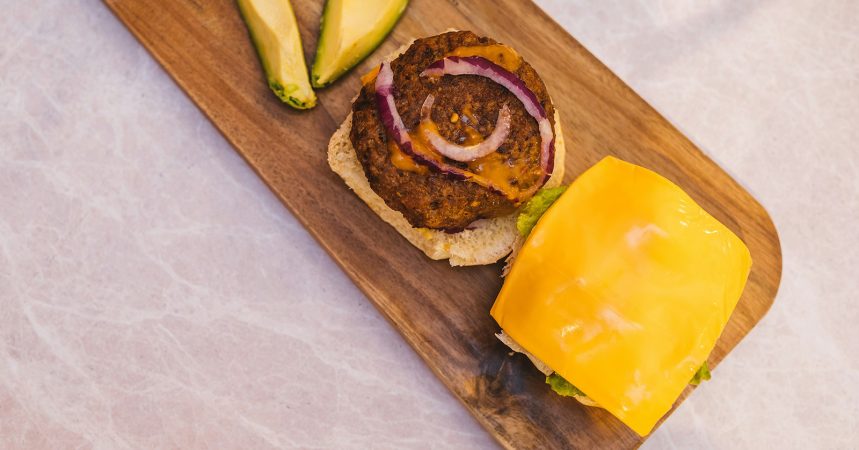Vegan cheese. It makes a great substitute for the real thing, but what’s in it?
You top your pizzas with it, add it to salads, and layer it on sandwiches. It’s the beloved vegan cheese! One of the best transition foods and go-to favorites, it’s great in everything from cheesy casseroles to vegan mac. You love the taste. You pick it up at the grocery every week. But, what is plant-based cheese made of? Well, we’re here to help answer that question.
Is It Healthier to Eat Vegan Cheese?
Yes, it is healthier to eat vegan cheese as opposed to its dairy counterpart. Cheese made from cow’s milk tends to be high in saturated fats and cholesterol. Plant-based cheese, on the other hand, contains no cholesterol because it’s made from plants. Animal foods are the only source of dietary cholesterol. Additionally, vegan cheese is often (but not always) lower in saturated fat than cheese made from cow’s milk. Saturated fats can lead to elevated blood pressure and cholesterol. They may also compromise your cardiovascular health. But another factor to consider when weighing the question of health is the ingredient list.
Is Vegan Cheese Highly Processed?
So, is vegan cheese highly processed? Yes and no. It can be, but it doesn’t have to be. It just depends on the brand. Some brands, like Miyoko’s and Rebel Cheese, prioritize cleaner, quality ingredients. We’re talking real food like cashews, sundried tomatoes, pistachios, oat milk, coconut oil, and more. So, the first thing to do when shopping is to turn over the package and check out the label. Look for nuts, soy products, and herbs and spices. You are searching for ingredients you can recognize. The more natural the ingredients, the better.
What Is Plant-Based Cheese Made Of?
Then, to answer the question, what is plant-based cheese made of? Well, the basic formula includes some kind of protein, starches, and herbs and spices to add flavor. Proteins usually include soy, such as tofu, or some kind of nuts. Nuts found in vegan cheese range from cashews and almonds to macadamias and pistachios. Beans also serve as a protein source for vegan cheese. These may include white beans, butter beans, lentils, chickpeas, and more. In addition to a protein source, you will find starches, such as tapioca starch, potato starch, corn starch, and others. Herbs and spices range from sea salt and garlic to rosemary, paprika, basil, and chives. You may also find add-ins like jalapeños, olives, truffles, and others. As we discussed earlier, it just depends on the brand and the type of cheese.

Courtesy of Daiya
Some Plant-Based Cheese Brands We Love
So, are you ready to make the switch from dairy? Or maybe you’ve been vegan a long time and want to try some new-to-you flavors. Either way, here are some plant-based cheese brands we love. What is plant-based cheese made of? It’s made of absolute deliciousness that goes just right on burgers, tacos, pizzas, and crackers alike.
For Sandwiches
For sandwiches, we like Chao, Follow Your Heart, and Violife. Trader Joe’s also is a solid choice. Slices come in flavor classics like American, provolone, pepper jack, Swiss, and gouda. You will also find unique blends such as Chao’s Tomato Cayenne.
For Melting
Violife and Follow Your Heart shreds are great for melting. Daiya is a go-to as well. From cheddar to mozzarella and Mexican-style to Colby Jack, you are sure to find a flavor that fits your cooking needs.
For Charcuterie Boards
Rebel Cheese is the hands-down favorite here. Find Cave-Aged Brie en Fleur, Gruyère, Honee Pistachio Chèvre, and others. Or opt for Babybel Plant-Based Cheese, Treeline, or RIND. And why not add some of the slices listed above?
Disclaimer: This article is intended for informational and educational purposes only. It is not a substitute for professional medical advice, diagnosis, or treatment. Always seek the guidance of a qualified healthcare provider before making changes to your diet, especially if you have existing health conditions or are taking prescription medications. Nutritional needs can vary from person to person.















